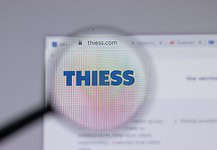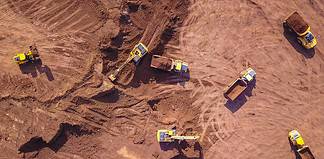WONDER WOMAN 84
Gal Gadot, Chris Pine, Kristin Wiig, Pedro Pascal
This year of living dangerously has been sparse in terms of major superheroes gracing the big screen. Ironically, after a golden period of box-office dominance, the one thing DC and Marvel’s greatest heroes couldn’t defeat was a pandemic.
But now, as the gruelling past 12 months close, one comic book character has emerged like a true hero to defy the odds to make it to the big screen and rescue 2020 from total misery: Wonder Woman.
Director Patty Jenkins embraces the same essence of innocence and optimism that she harnessed for the 2017 predecessor, illuminating the DC Extended Universe that was once so mired in morally murky seriousness and visually murky settings.
The sequel fast-forwards Diana several decades to the mid-80s, with the immortal character looking as hale and hearty as ever, but still mourning the loss of Steve Trevor (Chris Pine), who died many years before during the war in which the first movie took place.
But somehow Steve is resurrected, and it all ties in with a magical artifact that is the focus of the story. To reveal more would spoil the movie, but suffice to say it throws up a moral conundrum that is not extrapolated upon.
Nevertheless, combined with the film’s Washington DC setting, there’s a clear allegory and reference to the present day Trumpian regime, with the smarmy villain Maxwell Lord even proclaiming “I’m not a con man… I’m a television personality”.
Undeniably though, the heart and soul of Wonder Woman 1984 is Gal Gadot, whose grace, goodness and femininity still feels refreshing amid a crowded landscape of ripped male heroes.
WW 1984 is far from perfect. But despite some of its shortcomings, it succeeds in delivering the blockbuster thrills that 2020 has sorely missed.
And hokey though the message is, it offers the hope that humanity may just carve out a brighter future for itself.
THE BEE GEES: HOW CAN YOU MEND A BROKEN HEART
It’s almost criminal that the Bee Gees continue to be dismissed by self-opinionated critics who consider themselves too cool to be associated with a group whose members had more talent in the tips of their fingers than most humans. This documentary, directed by Frank Marshall, will go some way in casting the Gibbs in a more appreciative light.
Most of us who live in Australia know the basic history of the wonder trio: how they came out here at a young age, cut their teeth on the local scene, and went back to the UK and ensuing superstardom and disco infamy.
The movie heads straight into how success and fame was achieved through raw determination: Hugh Gibb, the father of Barry and twins Robin and Maurice, was a musician who simply believed his sons’ sublime harmonies and knack for songwriting deserved as much or more attention than, say, the Beatles.
He audaciously wrote to and offered up his cheerfully ambitious offspring to Beatles manager Brian Epstein, who then handed them over to a subordinate, Robert Stigwood. The rest is pop music history.
Marshall’s film succeeds by featuring interviews with the musicians and producers associated with the Gibbs, as well as the brothers themselves.
With archival footage and music cues that will invariably lure you out of your chair (or have you choked up during those achingly perfect chord progressions in the band’s ballads), The Bee Gees insists the Gibbs’ musicianship and prolonged success is as impressive as anyone in the rock pantheon.
The documentary features several musicians of note – Eric Clapton, Coldplay singer Chris Martin, Oasis’ Noel Gallagher, Nick Jonas, Justin Timberlake, to name just a few – all of who share a love and respect for the Gibb heritage and legacy.
The brothers were hurt and confused by the sudden backlash to Saturday Night Fever and their input to it; record companies started dropping disco acts, and everyone’s gaze was about to turn toward MTV.
But genius doesn’t lie hidden. The brothers reinvented themselves once more, this time as master collaborators and surefire love-song wizards writing for others, including brother Andy (three No 1s), Barbra Streisand, Dionne Warwick, Samantha Sang, Diana Ross, Celine Dion, Dolly Parton and Kenny Rogers.
The doco skims over the deaths of Maurice and Robin all too quickly, yet their occurrence certainly adds to the recurring theme of loss and poignantly wraps up the restrospective.
“I can’t honestly come to terms with the fact that Robin, Maurice and their younger brother Andy are not here anymore. I’ve never been able to do that,” Barry says. “I’d rather have them here and no hits at all.”








































